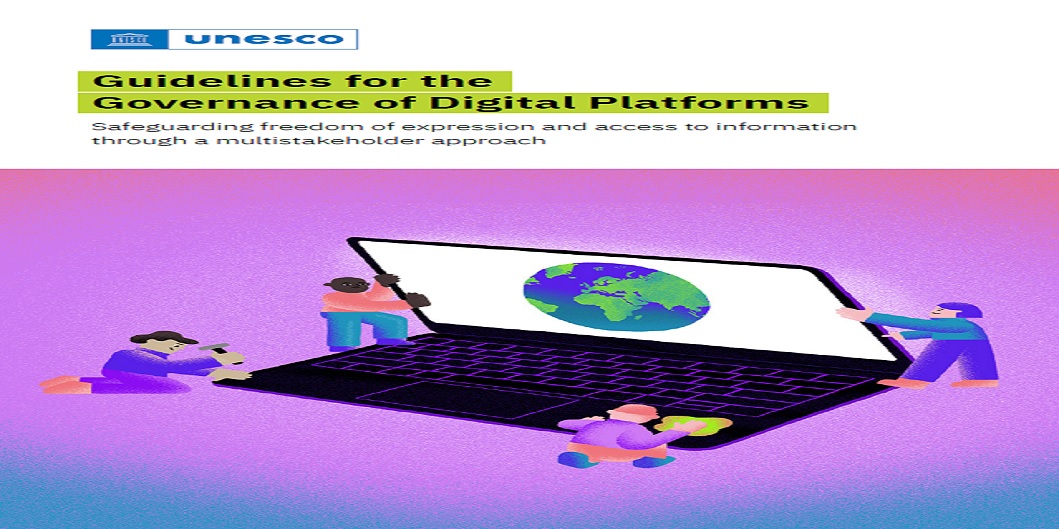Safeguarding freedom of expression and the right to information while dealing with disinformation, false or misleading information, hate speech and conspiracy theories requires an all-inclusive approach. This is the reason why UNESCO, the leading UN agency for the promotion and protection of freedom of expression and the right to information, has launched the Guidelines for the Governance of Digital Platforms. The Guidelines outline a set of duties, responsibilities and roles for States, digital platforms, intergovernmental organizations, civil society, media, academia, the technical community and other stakeholders to enable an environment where freedom of expression and information are in the core of digital platforms governance processes. The Guidelines were produced through a multi-stakeholder consultation that gathered more than 10,000 comments from 134 countries.
The purpose of these Guidelines is to safeguard the right to freedom of expression, including access to information and other human rights in the governance of digital platforms, while dealing with content, which may be restricted, with permission, in accordance with international law and the human rights standards. In a broader sense, human rights-based governance of digital platforms will promote cultural diversity, expression of the various cultures and diverse cultural content even further. The Guidelines outline a governance system that respects human rights and promotes risk management and systems-based processes for moderating and managing content.
The Guidelines for the Governance of Digital Platforms are available at this link






